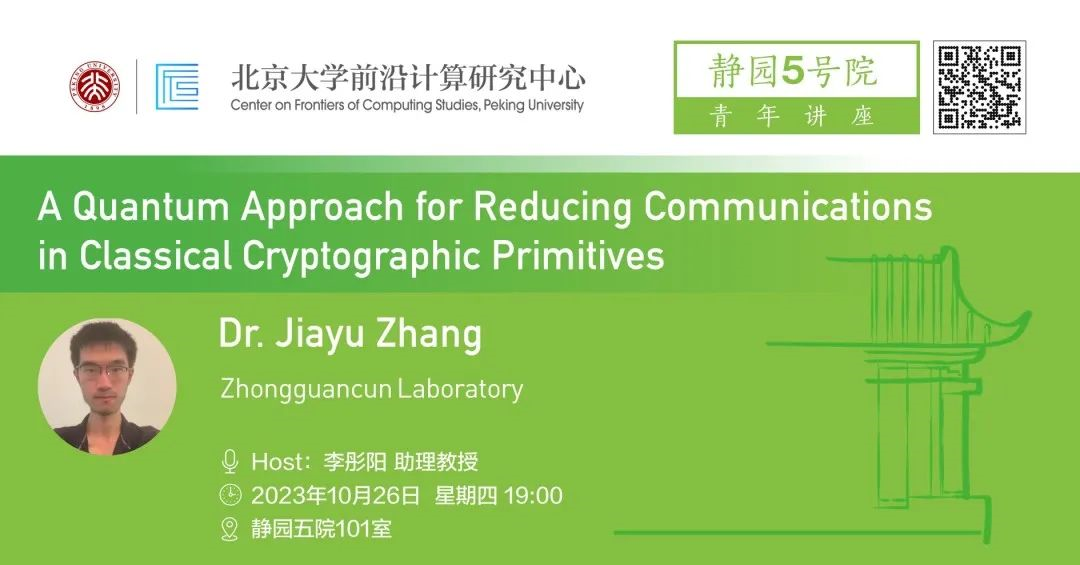Speaker: Dr. Jiayu Zhang, Zhongguancun Laboratory
Time: 19:00 p.m., October 26, 2023, GMT+8
Venue: Jingyuan Campus, Room 101
Abstract:
How could quantum cryptography help us achieve what are not achievable in classical cryptography? In this work we consider the following problem, which we call succinct RSPV for classical functions (sRCF). Suppose f is a function described by a polynomial time classical Turing machine, which is public; the client would like to sample a random x as the function input and use a protocol to send f(x) to the server. What's more, (1) when the server is malicious, what it knows in the passing space should be no more than f(x); (2) the communication should be succinct (that is, independent to the running time of evaluating f). Solving this problem in classical cryptography seems to require strong cryptographic primitives.
We show that, perhaps surprisingly, it's possible to solve this problem for a general class of f with quantum techniques under much weaker assumptions. By allowing for quantum communication and computations, we give a protocol for this problem assuming only collapsing hash functions [Unr16]. Our work conveys an interesting message that quantum cryptography could outperform classical cryptography in a new type of problems, that is, to reduce communications in meaningful primitives without using heavy classical cryptographic primitives.
Biography:
Jiayu Zhang is currently working in Zhongguancun Laboratory. He got his Ph.D degree from Boston University, continued to be a postdoc in Caltech, and returned back to China in 2023. His previous research is on the theory of quantum computation, especially quantum cryptography and quantum complexity.
Source: Center on Frontiers of Computing Studies, Peking University
